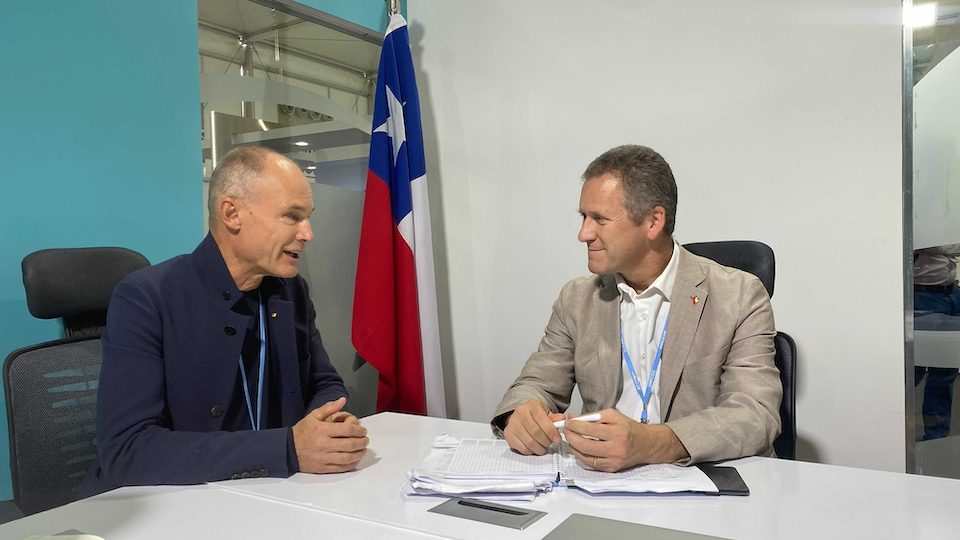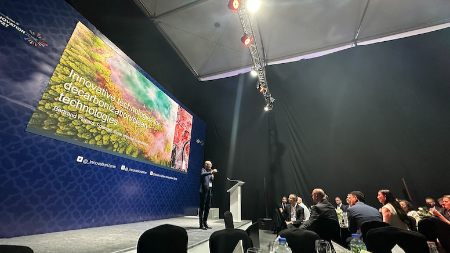Opinion - November 14, 2022
COP27 Open Letter to Ministers


Written by Bertrand Piccard 4 min read
Ministers,
You are arriving for the second week of COP 27 to breathe new life into the negotiations, and we expect something different from you than what we have seen for a week.
In recent days, European countries have retreated into their national problems, inflation and energy supply, and find themselves at odds after having taken hasty short-term, uncoordinated decisions that contradict their own commitments. The result is a certain tolerance for reduced climate ambitions, while the response to CO2 should be the same as with Russia: less fossil fuels and more efficiency. North and South have been torn over issues of compensation for CO2 damage done by industrialized nations. Even China, still considered internationally as a developing country, wants to be compensated, despite its rank as the second largest economic force in the world. Measures to combat climate change are seen by States as a threat to their economic development. The list of problems has been repeated a thousand times without addressing the solutions. And we are losing hope...
UN conferences are governed by technical mechanisms used to confront the problems encountered by each state, but they inherit old and traditional models focused on the functioning of developed nations. "That's not how we will protect the climate," a European negotiator told me.
Rather than agonizing over the definition of objectives, you should agree on the means to achieve them. Stop reversing problems. Getting out of fossil sources is not a solution to save the climate, it is a goal to be achieved. And for this, it is a question of implementing the solutions that make it possible to achieve this, such as efficiency and renewables. Take the existing solutions in all areas and collaborate to find the best ways to implement them. This is what "Together for Implementation", which we see written on all the signs of COP27, should look like. We ask for nothing more than the application of this slogan.
You could share your experiences on the necessary modernization of norms and standards to reduce the huge waste of energy and raw materials that costs a fortune in money, and not just in CO2.
Why don't you approach the economic development of the poorest countries from the angle of the delocalized installation of renewable energies for the most remote areas where the population has no access to the centralized production of electricity from fossil origin?
The solutions are not the same from one country to another. It is unfair for many to want to standardize measurements. Cooperation should be about finding the most cost-effective and easy-to-implement solutions for everyone.
Instead of focusing on the divisive topic of decarbonization, which scares many actors, try talking in economic terms. This is where efficiency comes in to get a better result by stopping wasting resources. What makes it possible to reduce expenses, to offer the best financial opportunities, to create the most jobs, to improve the purchasing power of the poorest? You will systematically fall back on the solutions that make it possible to modernize our old inefficient infrastructures, on the sources of renewable energies, on the advantages of a circular economy.
The paradox is that by talking less about CO2, and more about economically profitable solutions to replace what pollutes with what protects the environment, you would create a greater coalition of interests, the indirect consequence of which would be a much faster reduction in emissions.
So, this week, if you hear that the climate transition is difficult, know that it is not true: the solutions exist in all areas. You still have to prepare the ground for them to be implemented.
If you hear that this transition is expensive, it is also false. As long as you don't confuse investment and cost. Buying fossil fuels is a cost, since the money is spent; Installing renewable energies is an investment that pays off.
I wish you a fruitful week and draw your attention to the fact that you will have to answer to many people.
Bertrand Piccard
President of the Solar Impulse Foundation
First published in La Tribune and Le Temps
Written by Bertrand Piccard on November 14, 2022


